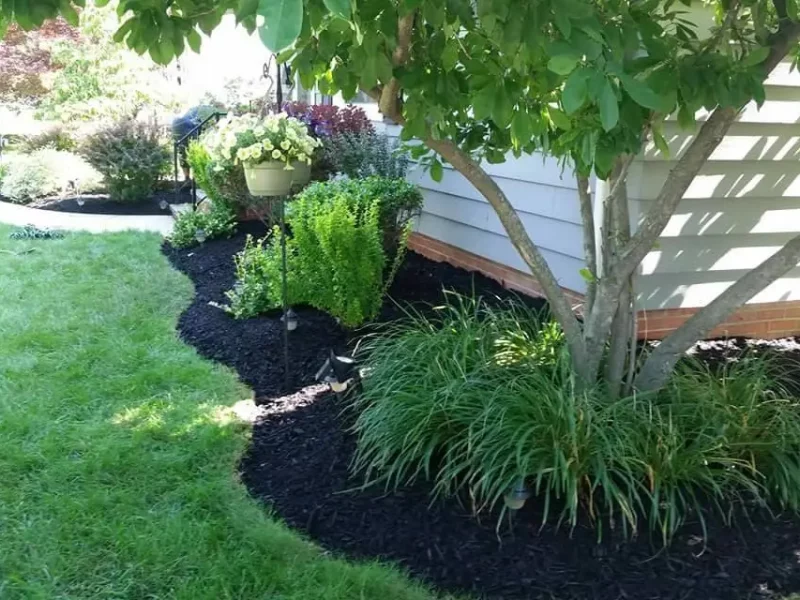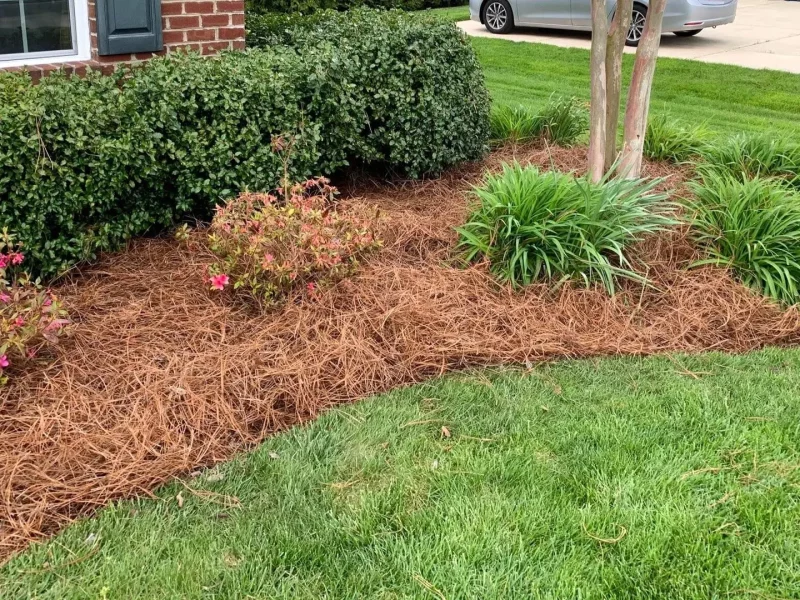FLOWERBED MULCHING MIDDLETOWN KY

RiSE Turf Care Services
FLOWERBED MULCHING
There are a number of natural mulches out there, with hardwood bark mulch, pine straw and old hay most popular. Which is the best choice for your garden?
Mulching
Spring is coming and it’s time to start thinking about mulching your flower beds for the summer. Our flowerbed mulching services are very useful for you because natural mulch is extremely beneficial for a garden. It traps moisture in the soil, so you don’t have to water as often, and it acts as an insulator, so your plants’ roots don’t get too hot. (It has the same effect in the winter, keeping plants from getting too cold.) And it suppresses weeds, so you don’t have to weed as often!
Using Hardwood Bark Mulch
Most people’s gardens grow plants that prefer their soil neutral to sweet (alkaline). Hardwood bark mulch is the best for those plants. It decomposes into a rich, sweet-smelling black dirt, and it looks ever so tidy while doing it. Plus, hardwood bark mulch is the best for amending your soil. The problem is, it’s expensive, especially when you’re buying it from a garden center at a dollar seventeen a bag (and they’re not big bags, either).
Using Pine Straw Mulch
Pine straw is good for suppressing weeds. It has a tendency to form a thick mat, and woe to the weed that tries to come up through that! But pine straw is not for every garden. Over time it can turn your soil acidic and make it difficult to grow anything there. Some plants love acid soil. If your flower bed is primarily made up of these acid-loving plants, then pine straw is not only okay, but also perfect. and use a wide, sweeping action working from the bottom of the hedge upwards, so that the cut foliage falls away.


Using Hay As A Natural Mulch
Old hay, on the other hand, is dirt cheap. If hay gets wet and spoils, farmers can’t use it to feed their animals anymore; it might kill them. For a gardener, however, that spoiled hay is just exactly what your garden needs. In fact, your garden will probably like it better than the fresh, unspoiled stuff and your vegetable garden will probably like it better than the hardwood bark mulch, and you can often get an entire bale of spoiled hay for just a couple of bucks.
The problem with old hay, of course, is that hay is made from grass (or grains). Grass in a garden are called weeds, and that hay is just chock full of the seeds of its kind, plus some other weeds that may have got bundled up with it. What’s a gardener to do?